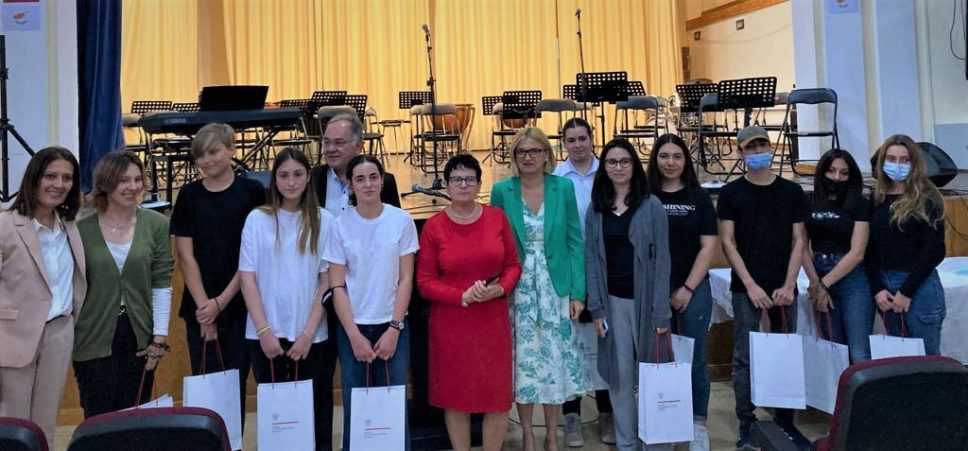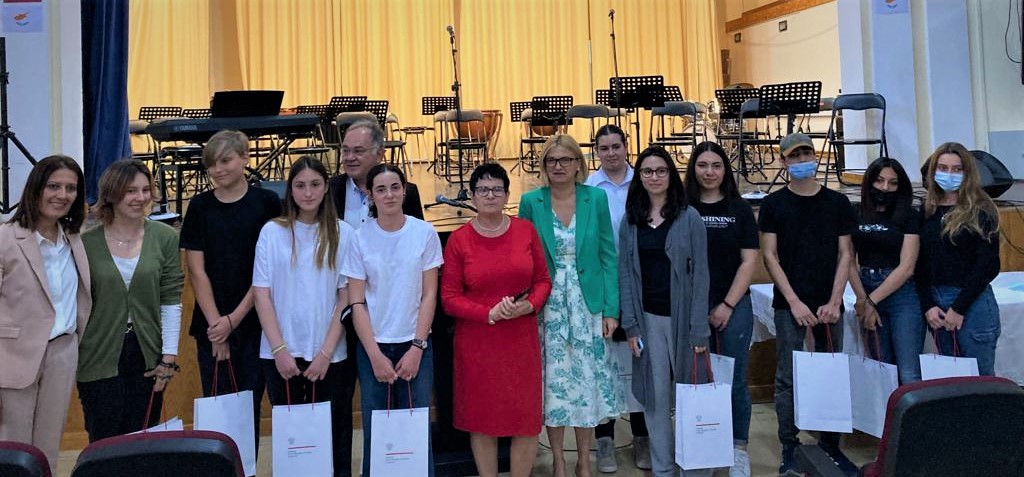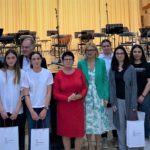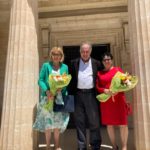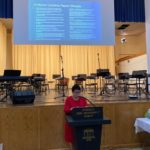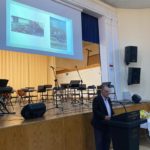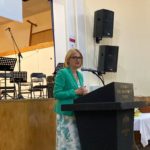In early May 2022, in Paphos (Cyprus), archaeologists from the Polish expedition working in the UNESCO World Heritage-listed ancient city attended a local high school event to listen to the students’ presentations about their city’s history and archaeology. The event was part of a new collaborative archaeological project instigated by the Polish Centre of Mediterranean Archaeology UW in March 2022.
The project is conducted in cooperation with the Maloutena-Agora Project (MAP) by Dr. Tomomi Fushiya and Eleanna Avouri of the PCMA UW. Their research explores the emotive roles of archaeological heritage, with the Nea Paphos Archaeological Park as a case study. It looks into the role of the archaeological site as a space of conversation and interaction between local residents and migrants living in Paphos, and considers how archaeological sites could contribute to the well-being and social cohesion in society.
The project also designs and implements engagement programs for local communities, centered around archaeology and the archaeological sites. They are conducted together with other MAP members and create opportunities for local residents to interact with archaeology and archaeologists. At the same time, they allow the archaeologists to learn about and interact with local perceptions and narratives of archaeology.
The first engagement program was organized in cooperation with the Archbishop Makarios High School in Paphos. The students visited the archaeological park in Nea Paphos where they were guided by MAP members: Dr. Łukasz Miszk who presented the results of excavations and Dr. Małgorzata Kajzer and Kamila Niziołek who showed them selected artifacts.
The second part of this program was the event held at the high school during which the students showed their films and presentations on the subject “Nea Paphos and Paphos: The modern city next to the ancient city” with photos and films they recorded during the site visit.
The event was attended by the Polish Ambassador to Cyprus, Mrs. Irena Lichnerowicz-Augustyn, who was welcomed by the headmaster, Mr. Andreas Iosif in Polish, which he knows because he studied in Poland. During the opening ceremony students from the music school in Paphos performed a song by the famous Greek composer, Mikis Theodorakis, entitled “Beautiful City”. The Ambassador, in her address highlighted the ties between Cyprus and Poland, and the longstanding Polish archaeological activity in Paphos, and also encouraged the students to consider studying in Poland. Prof. Ewdoksia Papuci-Władyka, the director of the MAP and head of the new PCMA Research Centre in Paphos gave a short lecture on “Polish archaeological excavations in Nea Paphos”. She also stressed the importance of providing information on archaeological research to students, youth, and the wider community of the city.
The preliminary program of collaborative archaeology at the PCMA UW in 2022 was funded by an IDUB microgrant from the University of Warsaw.
See a brochure on Nea Paphos prepared by the collaborative archaeology team (PDF English; PDF Greek)
Read more about PCMA UW excavations in Nea Paphos.
-
Collaborative archaeology event at the the Archbishop Makarios High School in Paphos (fot. MAP/CAŚ UW)
-
Collaborative archaeology event at the the Archbishop Makarios High School in Paphos: the Ambassador of Poland, Mrs. Irena Lichnerowicz-Augustyn, the headmaster, Mr. Andreas Iosif, and Prof. Ewdoksia Papuci-Władyka (fot. MAP/CAŚ UW)
-
Collaborative archaeology event at the the Archbishop Makarios High School in Paphos: Prof. Ewdoksia Papuci-Władyka (fot. MAP/CAŚ UW)
-
Collaborative archaeology event at the the Archbishop Makarios High School in Paphos: the headmaster, Mr. Andreas Iosif (fot. MAP/CAŚ UW)
-
Collaborative archaeology event at the the Archbishop Makarios High School in Paphos: the Ambassador of Poland, Mrs. Irena Lichnerowicz-Augustyn (fot. MAP/CAŚ UW)

